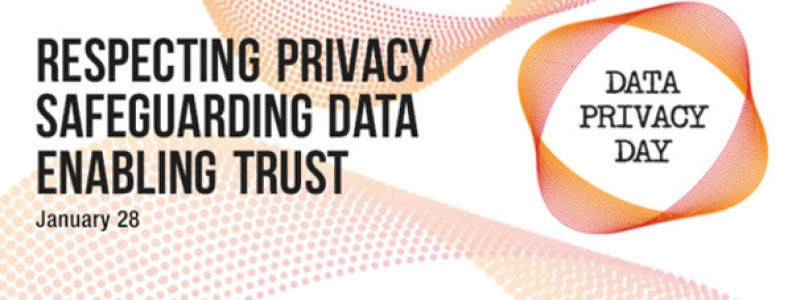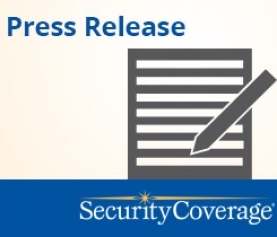When we lose precious information, whether to a system crash or to hackers, it can feel like we are losing parts of our lives. That’s why keeping our data safe and sound is serious business at SecurityCoverage. The following tips from our top SecureIT Agents are good rules of thumb that will help keep your data safe from both an internal malfunction and an external invasion.
1. Use a proactive software protection. Anti-malware AV software should be a basic requirement for initial protection on all smartphone, tablets, laptops, and PCs.
2. Viruses and spyware can creep into your computer and quickly degrade performance and corrupt or even destroy data.
3. Be cautious of suspicious emails from unknown sources. Don’t open emails with attachments if you don’t know the sender.
4. Steer clear of websites of ill reputation. These are havens for malicious and annoying intruders like spyware and key loggers.
5. Keep your operating system updated. Repair security holes that hackers love to exploit with the newest critical updates from Microsoft or Apple.
Consistent data backup is also crucial. Backing up to a separate media device or online backup solution on a regular basis ensures that important files are secure.
How to keep your personal information secure online? In an age when we keep all of our personal information on vulnerable machines and mobile devices, it’s more important than ever to take every possible precaution to keep your data secure. As if the endless news surrounding multiple national big box retail companies wasn’t bad enough, hackers continue to put millions at risk by stealing credit card data or gaining access to our webcams without our knowledge. So how do you stay safe? How do you protect yourself from the countless risks of a connected society?
There’s no way to plug every leak, but we have put together a quick list of suggestions that could keep your photos, videos and documents private and your accounts inaccessible to others.
1. Put a password on all of your devices.
2. Sign out of social media and email accounts when you finish using them.
3. Turn on multi-step authentication for services that offer the added protection.
4. Clear your browser history frequently.
5. Put a sticker over your webcam when it’s not in use.
As the average home contains 12 Internet connected devices, many of these practices might be second nature for us, but it never hurts to double check our habits.
What is the biggest problem with individual data privacy? The biggest problem we foresee stems from mobile usage (smartphones and tablets). Many people utilize the convenience mobile devices offer by allowing on demand 24/7 data access at the swipe of a finger. What they don’t realize is that those devices are essentially mini computers and they are accessing the same data that they trust their PC with. Online banking, shopping, and sharing personal information over social media sites! They should have the same protection on their smartphone (if not more) than they do on their PC. It’s not a matter of if, but when, cyber criminals shift their attention over to mobile platforms as more and more of the population becomes addicted to their mobile device.
Is there a silver bullet to protect against cyber criminals? Unfortunately there is no magic cure to cyber crime but there are a few simple and effective ways to preserve your personal information.
1. Put passwords or lock patterns on all of your devices.
2. Use Anti-virus software. Anti-malware AV software should be a basic requirement for initial protection on all PCs and mobile devices. You should also use a password manager which stores and protects all of your personal passwords. Don’t trust the browser to remember your login credentials! Password managers encrypt your data and assigns a complex algorithm as your password which makes it virtually impossible for someone to hack your passwords.
3. Be cautious of what you click on. Especially on emails and social media sites like Facebook. Don’t open an attachment or click on a link unless you are certain you know this person and have determined the link to be safe.
4. Keep your software and Operating System up to date. Many breaches occur as a result of security flaws in the OS and companies like Microsoft and Apple are constantly updating their OS in order to patch these holes.
What is the worst, industry wide story you’ve heard about data loss due to user negligence? There has been a rash of national retailers and eCommerce companies in the news lately like Target and Home Depot. What is happening is that their internal point of sale and accounting systems have fallen prey to a hacker who is stealing credit card numbers or personal information and reselling it to other thieves. There is honestly nothing you can do about these types of breaches because they are dependent on the retailer or company you are purchasing with. The BEST thing you can do is pay cash as much as possible at retail stores. Otherwise change your account info and passwords at least every 3 months.
What is the most commonly used password? The 2014 most commonly used password was oddly enough “123456” unseated by “password” in 2013. And believe it or not, the most common tool used to remember passwords is a post it! People should be creative with their passwords. Use something unique, not something that your facebook friends could guess by knowing your favorite movie, birthday, or pet’s name. All of which you posted last month on social media for the world to find!
Good luck out there and stay safe!
~SecurityCoverage




